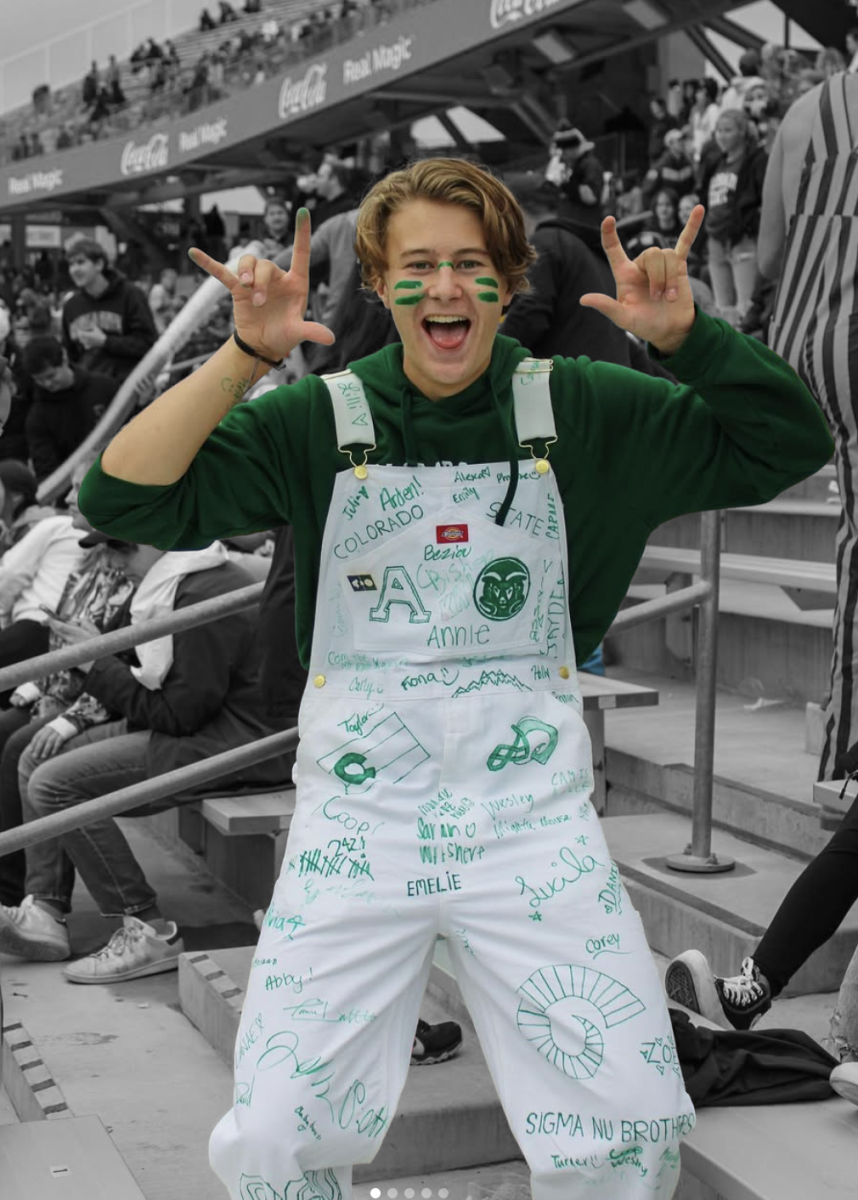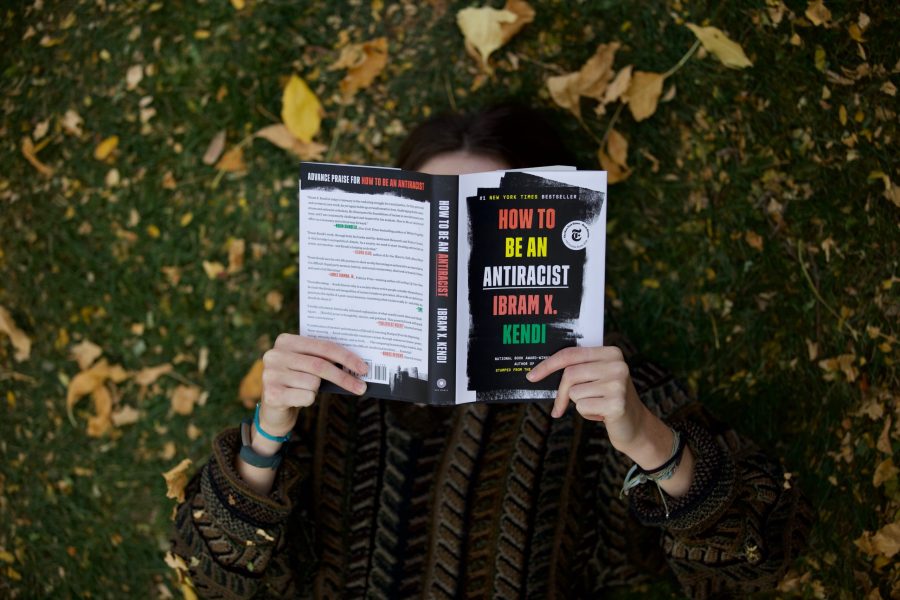The idea of a campus reading program here at Colorado State University has been being tossed around for a while, and this year with the endorsement of President Joyce McConnell, it has finally become a reality.
“The new Rams Read initiative is actually in part a response to our current time,” McConnell writes in a university-wide email from July 24, 2020. “We cannot be physically together, but we can read together, and then discuss what we’ve read, finding the ways that the text challenges us, bridges the gaps between us, helps us understand one another better, and pushes us to act on our new knowledge and sense of connection.”
National events such as the death of George Floyd served as impetus enough for CSU to generate a response to the Black Lives Matter movement, not to mention CSU’s own history with bias incidents.
At the intersection of the Black Lives Matter movement and a global pandemic, the University is looking for ways to engage students in safe, socially distant ways.

The Rams Read book for the 2020-2021 school year is “Citizen: An American Lyric” by Claudia Rankine, and the program invites the whole CSU community to read, and then engage through discussions and events. “Citizen” is not a typical novel, but can be described as a book length poem or lyric essay, touching on topics such as microaggressions faced by African Americans, controversial race issues, and includes images of related artwork, such as paintings, photographs, and drawings.
“This book was going to intentionally spark some reaction for students who aren’t as familiar with engaging with books like this. It might be new and different for some folks and that was strategic,” says Ryan Barone, assistant vice president for Student Success, and one of the Tri-Chairs for the Rams Read program. “It was picked as a challenge for students to engage with. It’s a read that is meant to be contextualized by engagement, whether this means discussions in class, book clubs, or other events the program has in the works.”
While “Citizen” was the book picked for the school year, the initiative began over the summer, with the promotion of Ibram X. Kendi’s “How to Be An Antiracist.” This book, along with the idea was picked up by Tori Anderson, a research associate in the College of Agriculture and a member of their Diversity Catalyst Team.

“I think that one of the ways that culture shifts is when we move forward in the work together, and so it seems like a really neat idea to be able to rally our college around the reading,” says Anderson.
The faculty and staff of the College of Agriculture formed a book club, with the intention of the book being a shared resource to allow everyone to join the conversation from wherever you are in your journey, according to Anderson. For their book club, reading and participating is centered around the idea that discussion can lead to concrete changes in their work here at CSU.
Barone cites the specific value of anti-racist reading as the way a reading experience can move from being individual and personal, to a shared experience that can expand our understanding of the text to conclusions we might not reach on our own.
“I hope that reading is a unified human experience that allows us to engage both intellectually and emotionally in a really nuanced, powerful and transformative manner,” Barone says. “I hope it creates some level of dissonance for everyone who reads it. I think at the site of dissonance is rich opportunity for new learning, and then more informed action.”
Specifically at CSU, the program strives to embrace the values of CSU’s land grant mission, be relevant to the BLM movement, while also being accessible during the COVID-19 pandemic. Student engagement has been impacted by COVID-19 restrictions, but is still being picked up in several ways. “Citizen” is being read in classes, and used in the Live and Learn residential curriculum for the residents halls. Rams Read has emailed out over 4,600 copies of electronic access of “Citizen” to new students, inviting them to engage.
In addition, author Rankine spoke at CSU’s Diversity Symposium on October 21.
“When I was writing Citizen, I wasn’t thinking I was doing social justice work or equity work, or I wanted to make visible something that was invisible,” Rankine said. “And I wanted the language to be able to communicate something that I know existed. And so when I was working on it, I wasn’t really thinking about Citizen as a kind of activist text; I was thinking about it as a text where language would bring forward an action.”
“When I was writing Citizen, I wasn’t thinking I was doing social justice work or equity work, or I wanted to make visible something that was invisible.” — Claudia Rankine, author of “Citizen”
The Rams Read program offers “Citizen” as a shared resource for the CSU community, a resource that is slowly being picked up by student clubs and offices, and beginning to be read. “Citizen” may not be a book that is approachable to all students reading on their own, but within the context of the program, it can be a unique experience.
“From this program, students gain perspective,” says Cinque Mason, a third year Communications Studies major who works with Rams Read in the president’s office. “If they’re willing to put themselves in the shoes of the author, in that first-person perspective, they would start to understand and feel what it feels like to be Black in America. I think the value of this book is that it brings about a greater sense of empathy.”
Rams Read has worked hard to get copies of the book into the hands of as many students as possible, and is working on creating structure and resources for engagement. In addition to the residence halls, the student Committee for Excellence has formed a book club, and several of the SDPS offices have plans in the making, according to Barone. Now, it’s up to the student.
“I think that this is a good book … However, I do not think it’s a great book for people that don’t want to learn,” Mason says. “At the end of the day, how are you going to get someone that doesn’t want to learn to learn about something?”
Now that the program exists, it’s time to see if the CSU community is willing to read, discuss and make change happen.
College Avenue Contributor Grace Cooper can be reached at editor@collegeavemag.com.

































